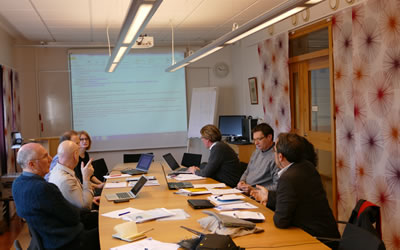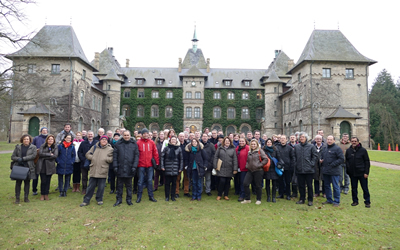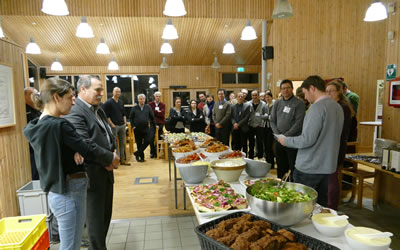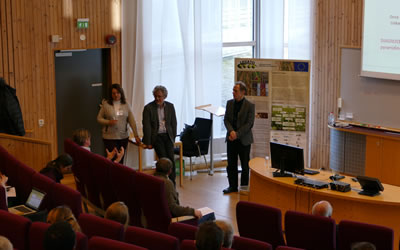LEGATO Executive Committee Meeting no. 3
LEGATO First Annual Meeting
and
LEGATO First Stakeholder Workshop on:
"New Perspectives on Grain Legume Production and Uses for Human Consumption"
Alnarp, Sweden, 24-26th February 2015
Amongst the events organised by the LEGATO Project in Alnarp, Sweden, on 24-26 February, the Stakeholder Workshop on: “New Perspectives on Grain Legume Production and Uses for Human Consumption” was conceived to provide an answers to two main questions: What potential do European‐produced legumes for food have to supply our protein needs? And how can their consumption be promoted?
For the first question, what potential do European‐produced legumes for food have to supply our protein needs, the conclusions drawn are that on the macro-economic scale, European agriculture has the potential to supply a significant proportion of our protein needs as pulses. Whether this will occur depends on many factors; competition with cheap soybean imports and more profitable crops, disease and abiotic stress problems which have resulted in diminishing legume crop areas for the past 20 years. The spiralling soybean prices, and the increased restriction on phyochemical inputs have recently led to a more positive political will to promote legume crops, reflected in the CAP which is somewhat "greener", and in national policies such as the French protein plan. The first positive indications on production and consumption are also detectable. Research projects such as LEGATO can help to fuel this positive impetus by providing innovative genetic material better adapted for food and feed, and for low-input agriculture, as well as locally-adapted cropping systems built around grain legumes that optimize their ecological services.
For the second question, and how can their consumption be promoted, the workshop participants provided several innovative examples of how grain legume consumption can be promoted for human consumption through both the development of novel products and marketing strategies, focusing on the merits of local sourcing and the use of traditional varieties and/or recipes. This theme was continued with further examples in the LegSA meeting which took place the same afternoon. Although it is early days, the examples presented, from start-ups or their equivalent, show there is great potential.





